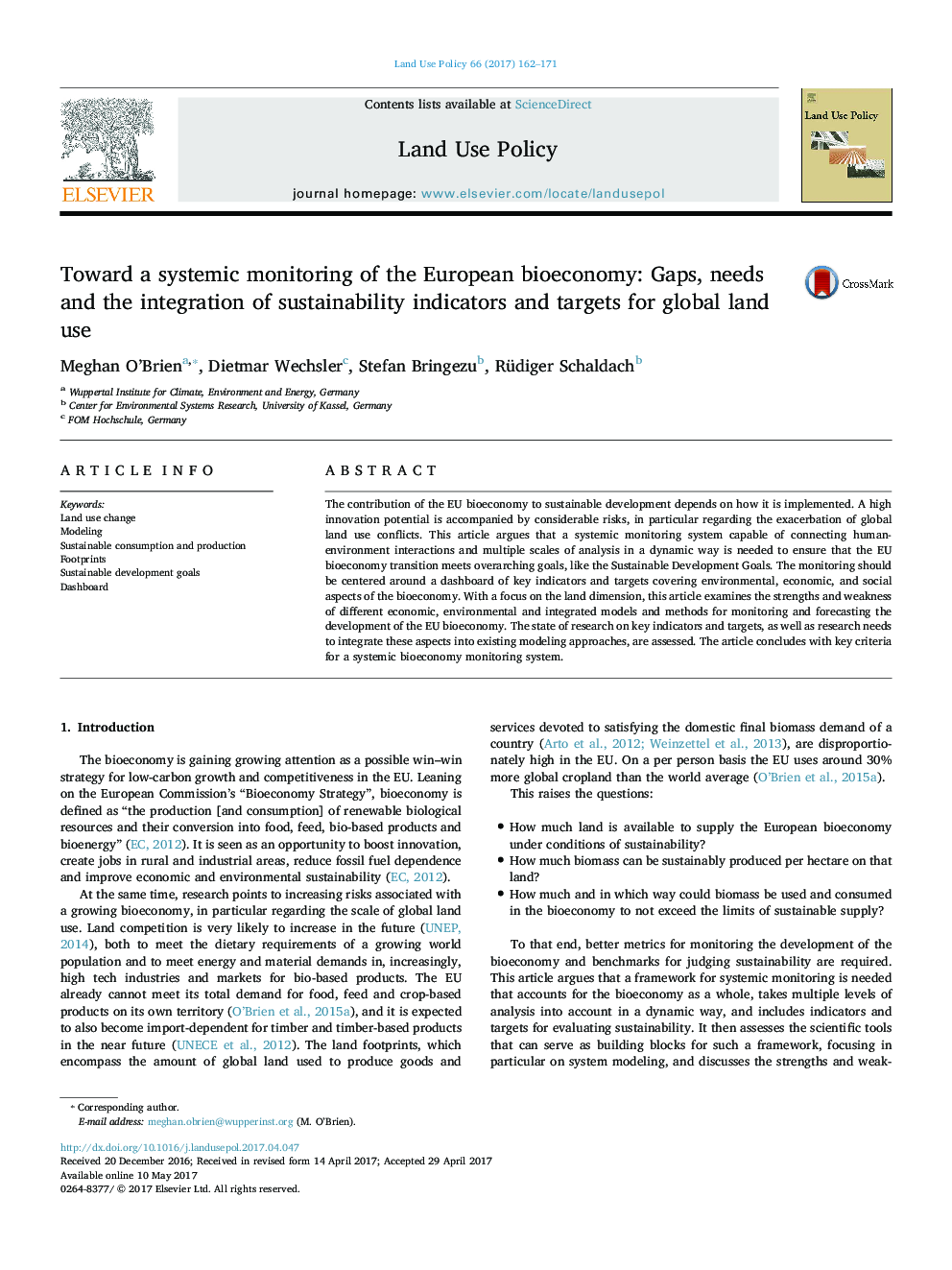| کد مقاله | کد نشریه | سال انتشار | مقاله انگلیسی | نسخه تمام متن |
|---|---|---|---|---|
| 6460911 | 1421817 | 2017 | 10 صفحه PDF | دانلود رایگان |
- The DPSIR framework may be used to help link bioeconomy drivers with environmental impacts.
- The toolbox consists of dynamically linked indicators and targets from multiple methods and models.
- A flexible integration of modeling tools is needed to support informed policy making.
The contribution of the EU bioeconomy to sustainable development depends on how it is implemented. A high innovation potential is accompanied by considerable risks, in particular regarding the exacerbation of global land use conflicts. This article argues that a systemic monitoring system capable of connecting human-environment interactions and multiple scales of analysis in a dynamic way is needed to ensure that the EU bioeconomy transition meets overarching goals, like the Sustainable Development Goals. The monitoring should be centered around a dashboard of key indicators and targets covering environmental, economic, and social aspects of the bioeconomy. With a focus on the land dimension, this article examines the strengths and weakness of different economic, environmental and integrated models and methods for monitoring and forecasting the development of the EU bioeconomy. The state of research on key indicators and targets, as well as research needs to integrate these aspects into existing modeling approaches, are assessed. The article concludes with key criteria for a systemic bioeconomy monitoring system.
Journal: Land Use Policy - Volume 66, July 2017, Pages 162-171
